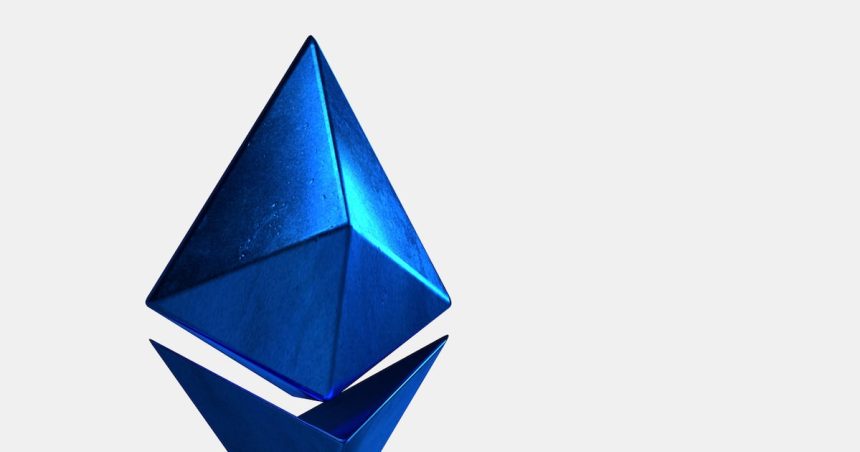A version of this article appeared in Us Decentralization Newsletter on 8 October. Sign up Here.
GM, Tim Here.
Devs propose changes to help Ethereum scale. DeFi reduces crypto theft, according to a security firm. EigenLayer loses $5.5 million to hacker.
Accelerating Ethereum
Ethereum developers have proposed two ways to increase the number of transactions the blockchain can process:
Core developer Giulio Rebuffo wants introduction One way to increase the block gas limit is to increase the number of transactions that can be included in blocks on the network. Ben Adams, Contributor to Ethereum Client Nethermind, Proposed Reducing Ethereum's slot time to increase transaction throughput by 33%.
Ethereum co-founder Vitalik Buterin previously Suggested Increasing the gas limit of the network.
Recently 2 prs increasing l1 gas limit created by core devsi Does l1 execution scaling catch wind? pic.twitter.com/3GqtwkVswe
— 0xngmi (@0xngmi) October 6, 2024
Recently 2 prs increasing l1 gas limit created by core devsi Does l1 execution scaling catch wind? pic.twitter.com/3GqtwkVswe
— 0xngmi (@0xngmi) October 6, 2024
The proposals could trigger a big push to boost Ethereum's performance.
Ethereum is still the largest smart contract network.
But in recent years, it has lost ground to newer, faster rivals like Solana. There is also a growing opinion within the Ethereum community that Layer 2 networks, once heralded as a way to help the network scale, are not a good solution.
The proposed changes may have disadvantages.
Join the community to get our latest articles and updates
Increasing the block gas limit would make it more difficult for people to run Ethereum validators from home, as Rebuffo wants.
The flexibility of running validators is a key part of Ethereum's commitment to decentralization.
DeFi reduces theft
Crypto experts urge DeFi to improve security – looks like they've been heard
According to data from TRM Labs, DeFi hacks dropped by a quarter in the first nine months of 2024 compared to 2023 as a whole.
Instead, it's the centralized exchanges and the custodians who are largely robbed.
According to web3 security firm Cyvers, hacking incidents involving centralized exchanges and custodians increased by approximately 1,000% from last year to $401 million.
Those CEX losses share a common theme – an attack on the platform's infrastructure could eventually expose the private keys of their crypto wallets.
As those who build DeFi protocols learn from past mistakes and ensure that their code is free of bugs, it becomes easier for hackers to compromise private keys.
EigenLayer slammed
The EigenLayer restocking protocol caught fire after a hacker tricked one of its employees into sending its EIGEN token worth $5.5 million.
Community Update: In an isolated incident this morning, an email thread involving the transfer of tokens into an investor's custody was compromised by a malicious attacker. As a result, 1,673,645 EIGEN tokens were mistakenly transferred to the attacker's address. The attacker…
— EigenLayer (@eigenlayer) October 4, 2024
Community Update: In an isolated incident this morning, an email thread involving the transfer of tokens into an investor's custody was compromised by a malicious attacker. As a result, 1,673,645 EIGEN tokens were mistakenly transferred to the attacker's address. The attacker…
— EigenLayer (@eigenlayer) October 4, 2024
Many in the DeFi community have criticized how the project allowed such theft to occur, instead of sending tokens to investors via direct transfers and establishing smart contracts to automate the distribution.
eigenlayer Said It is in contact with law enforcement and some of the stolen funds have already been frozen.
This is the latest controversy surrounding the protocol, which has attracted attention at its height $20 billion Deposits.
EigenLayer was previously criticized for conducting its first EIGEN token airdrop.
This Week in DeFi Governance
Vote: Uniswap DAO has elected two new members to its Accountability Committee
Vote: Lido DAO has adopted a community staking module, the protocol's first permissionless staking module
Vote: Synthetics has voted to overhaul its token and reboot its governance
Post of the week
Ethereum gas fees are rising again, making the network deflationary once again. But will it last?
Quick! Now annualize Ethirium cash flows and annual inflation pic.twitter.com/raYrOZY7Ui
— Evanss6 (@Evan_ss6) October 7, 2024
Quick! Now annualize Ethirium cash flows and annual inflation pic.twitter.com/raYrOZY7Ui
— Evanss6 (@Evan_ss6) October 7, 2024
Got a tip about DeFi? arrive at [email protected].
Related TopicsETHERUM







